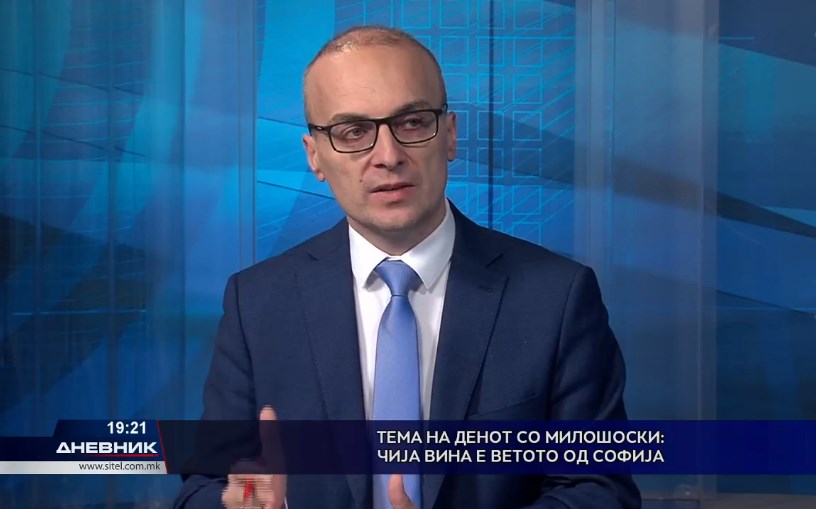VMRO-DPMNE official Antonio Milososki said that the party warned Zoran Zaev, early in his term in office, that signing the 2017 treaty will Boyko Borisov will lead to serious problems with Macedonia’s relations to Bulgaria.
This blockade is no surprise. In july 2017, a month before the signing of the treaty, a group of us from the Parliament Foreign Affairs Committee asked Zaev for a meeting, and he surprisingy accepted. Along with Trajko Veljanoski, Ilija Dimovski, Nikola Poposki, Emil Dimitriev and a number of others, we told Zaev that, in the form it was presented, the treaty will cause more problems that it will solve. But Zaev was flushed with enthusiasm in the start of his term, and he also had a prepared PR strategy, so the treaty was adopted without considering our objections, Milososki said.
The opposition advised Zaev to make suree the treaty specifically mentions the Macedonian and the Bulgarian nation, as well as to mention the Macedonian language – not only as the official language of Macedonia according to the Macedonian Constitution, but independently as well. These two issues are now raised by Bulgaria, which is pushing to blur the distinction between the two nations and languages.
You can’t reduce the language just to the framework of the Constitution. For one, there are Macedonians living abroad who speak Macedonian, not just in the home country, Milososki said.
Besides noting that the treaty is very assymetrical and skewed in favor of Bulgaria, the group of VMRO-DPMNE officials also warned Zaev that he should insist that the treaty, which mentions a common or shared history of the two nations, notes that this applies only to a portion of history. Bulgaria is now blocking Macedonia from opening EU accession talks, pointing to Zaev’s lack of implementation of the treaty.
In a Sitel TV interview, Milososki also discussed the shocking announcement from President Pendarovski that he was offered a place in the European Economic Area, but he refused.
Macedonia can’t miss out on such opportunities. If President Pendarovski spoke about this with Macron, he should inform the Parliament, the Government, the Academy, the chambers of commerce, and raise this issue in the public. This wouldd allow Macedonia to move forward as it waits on EU membership, Milososki said.





Comments are closed for this post.